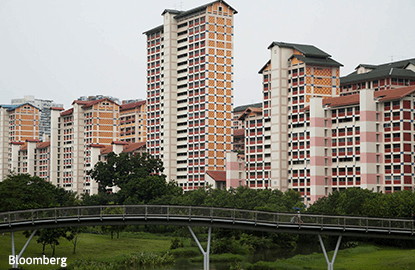
SINGAPORE (March 10): Even as Singapore’s property cooling measures look set to remain, the government on Friday announced a reduction of Seller’s Stamp Duties (SSD) and changes to the Total Debt Servicing Ratio (TDSR).
In addition, Second Minister for Finance Lawrence Wong in parliament on Friday introduced a new stamp duty levied on the purchase and sale of residential property in property-holding entities (PHEs).
The changes will kick in from March 11.
Meanwhile, there will be no changes made to the current Additional Buyer’s Stamp Duties (ABSD) rates and Loan to Value (LTV) limits as “transaction volumes in the private residential property market remain healthy,” say the Ministry of National Development (MND), Ministry of Finance (MOF), and Monetary Authority of Singapore (MAS) in a joint release.
Seller’s Stamp Duties (SSD)
The SSD is currently payable by those who sell a residential property within four years of purchase, at rates of between 4% and 16% of the property’s value.
With effect from March 11, the government will reduce the holding periods to up to three years.
The rates have also been lowered by four percentage points. The new SSD rates will range from 4% for properties sold in the third year to 12% for those sold within the first year.
Total Debt Servicing Ratio (TDSR)
Currently, there is a TDSR threshold of 60% for property loans extended by a financial institution.
This was implemented to encourage prudent borrowing by households and strengthen credit underwriting standards by financial institutions.
The government today announced that it is removing the TDSR for mortgage equity withdrawal loans with LTV ratios of 50% and below.
According to the statement, this move comes after feedback from some borrowers that the TDSR framework has limited their flexibility to monetise their properties in their retirement years.
Alignment of stamp duties
Transactions in residential properties will now be treated on the same basis, regardless of whether the properties are transacted directly or through a transfer of equity interest in an entity holding residential properties.
Significant owners of residential property-holding entities will now be subject to the usual stamp duties when they transfer equity interest in such entities, similar to if they were to buy or sell the properties directly.
MND, MOF, and MAS stressed that the intent is not to impact the ordinary buying and selling of shares in such entities by retail investors, where the entities are listed on the Singapore Stock Exchange.
The bill was introduced and passed in Parliament today.
It comes after several high-profile deals, including banker Wee Cho Yaw’s purchase of 45 unsold units of The Nassim from CapitaLand for S$411.6 million, through the purchase of a 100% stake in Nassim Hill Realty.
According to RHB, the tweaks to property measures are minor and shouldn't result in a major shift in buying sentiment.
“The key measure which has been dampening the buying demand is ABSD and TDSR framework which restricts the borrowing capabilities,” says RHB, “As these measures are left largely unchanged, we expect muted demand growth from policy tweaks.”
“Saying that we do expect developers and property agents to capitalise on the announcement and prop up the sale in new launches and existing projects. This could result in a volume spike in the near-term esp. in the upcoming launches,” adds the research house.
Developer stocks have jumped by 5%-10% after the policy announcement, but RHB expects property stock prices to normalise once the initial euphoria dies down.
“We are currently reviewing our expectation of 3-7% price fall expectations for 2017.”
RHB’s top pick is City Developments (S$10.50), as it still remains the best proxy to play on any relaxation of property cooling measures.